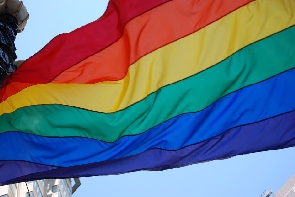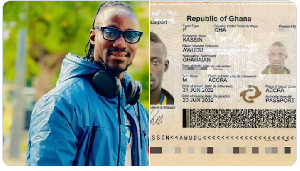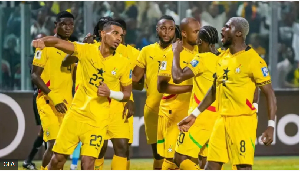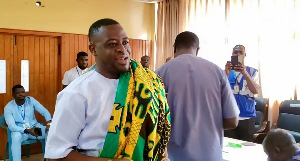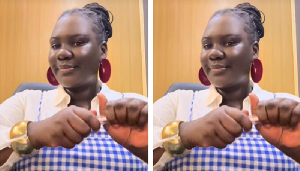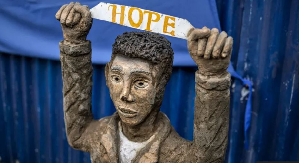In Ghana, the perennial anti-gay and homophobic sentiments have once again become a matter of intense and very emotional public debate.
Spurred by reports that LGBT+ community have opened a community space where they can socialise, plan and advocate for their freedoms and liberties, many politicians, the clergy, the media, and general public bayed for its immediate closure, while calling for the arrest and censure of members and allies. In Ghana homosexuality is not illegal.
The only relevant act that Ghana’s laws criminalise, according to Lawyer Ace Ankomah is “unnatural carnal knowledge.” In this case, “non homosexual anal penetration (performed by men on women, whether consenting or not) is just as criminal” as a penetrative homosexual act. AAnal sex and blow job are in fact illegal in Ghana not homosexuality per se.
This notwithstanding, a team of police officers raided and closed down the community space in Accra on 25 February 2021, barely a month after it was commissioned on January 31, 2021. The major narrative that characterises these homophobic sentiments and actions is that same sex attraction is unAfrican”, meaning, it is alien to African cultures and a form of neo-Colonial imposition.
Minister of information, Kojo Oppong Nkrumah has called for specific laws to be enacted against any form of advocacy for LGBT+ rights. Sam George, the MP for Ningo-Prampram intimated that the European diplomats who attended the fundraiser for the community space be expelled from Ghana, but in like manner also called for parliament to criminalise both LGBT+ practice and advocacy. Mr George aims to introduce an anti-gay bill to parliament for this purpose.
According to Sarah Adwoa Safo, the Minister of Gender and Children ASffairs, “the criminality of LGBT is non-negotiable, and our cultural practices also frown on it." Ironically the loudest advocate against LGBT+ rights in Ghana is Mr Foh-Amoaning, a lawyer and Executive Secretary of the National Coalition for Proper Human Sexual Rights and Family Values.
What is common among these leading anti-gay activists and many Ghanaians is that they see themselves as defenders of precolonial African morals and sexual decency. Even so called avowed pan-Africanists have been caught in this error that sees same sex love as completely alien to African cultures.
My question, is homosexuality really unAfrican? I intend to dispel these myths and not to postulate on what is right or wrong sexual orientation.
Is homosexuality UnAfrican?
I have listened with awe how even some university lecturers and professors who were interviewed on the topic erroneously categorised same sex desire as a Western or foreign import. It is not clear whether this notion is due to ignorance or postulated for pure political expediency, or both.
What it does is cause Ghanaians who are gay a lot of distress, to say the least. In many cases the rhetoric of neo-colonialism is evoked to support the myth that same sex desire is alien and unacceptable to African cultures and religious beliefs.
There is however a plethora of historical sources and academic literature that show that same sex desires, relationships and non-binary gender expressions and identities were common to precolonial African cultures.
In fact, it is rather the colonisers and fundamentalist Christian missionaries who legally enforced homophobia in Africa. Activists, and Africanist scholars, such as Bisi Alimi, Thabo Msibi, Adriaan Van Klinken, Stephen Murray, Will Roscoe, and Deborah Amory among others provide wide ranging evidence that homosexuality has been a “consistent and logical feature” of pre-colonial African societies and belief systems.
In the 18th and 19th centuries Asanteman, (Asante Kingdom) for example, male concubines, who were also sex slaves, existed. These men dressed and acted like women. The Dagaaba people did not assign gender based on anatomy, but rather on the energy one presents. In Dahomey, castrated males or eunuchs served as royal wives in the upper courts of the Kingdom.
“These eunuchs were regarded as more female than male and occupied influential positions in the courts, thus granting them extensive power over the Kingdom”. In pre-colonial Benin, homosexuality was seen as a phase that young boys eventually grew out of. In Northern Nigeria, the Hausa term “yan daudu” refers to effeminate men who are considered wives.
Similarly, among the Nilotic Lango of Uganda, men, known as mukodo dako assumed “alternative gender ” status and were treated as women who could marry other men.
The book Boy-Wives and Female Husbands, makes it quite clear that African cultures are no stranger to same sex desires or relationships. Homosexual behaviour and relationships were not uncommon in Africa. There is overwhelming evidence to show that in pre, and post colonial African societies same sex relations and diverse appreciation of gender identity existed. What is clear is that it is rather homophobia (intolerance) that is itself a Western import.
Opinions of Sunday, 21 March 2021
Columnist: Kwame Ahaligah

